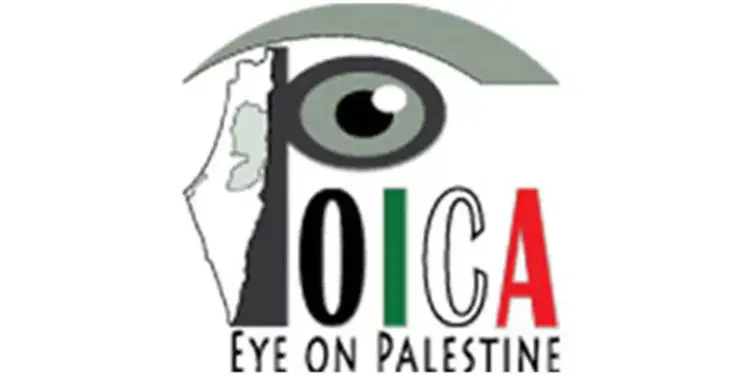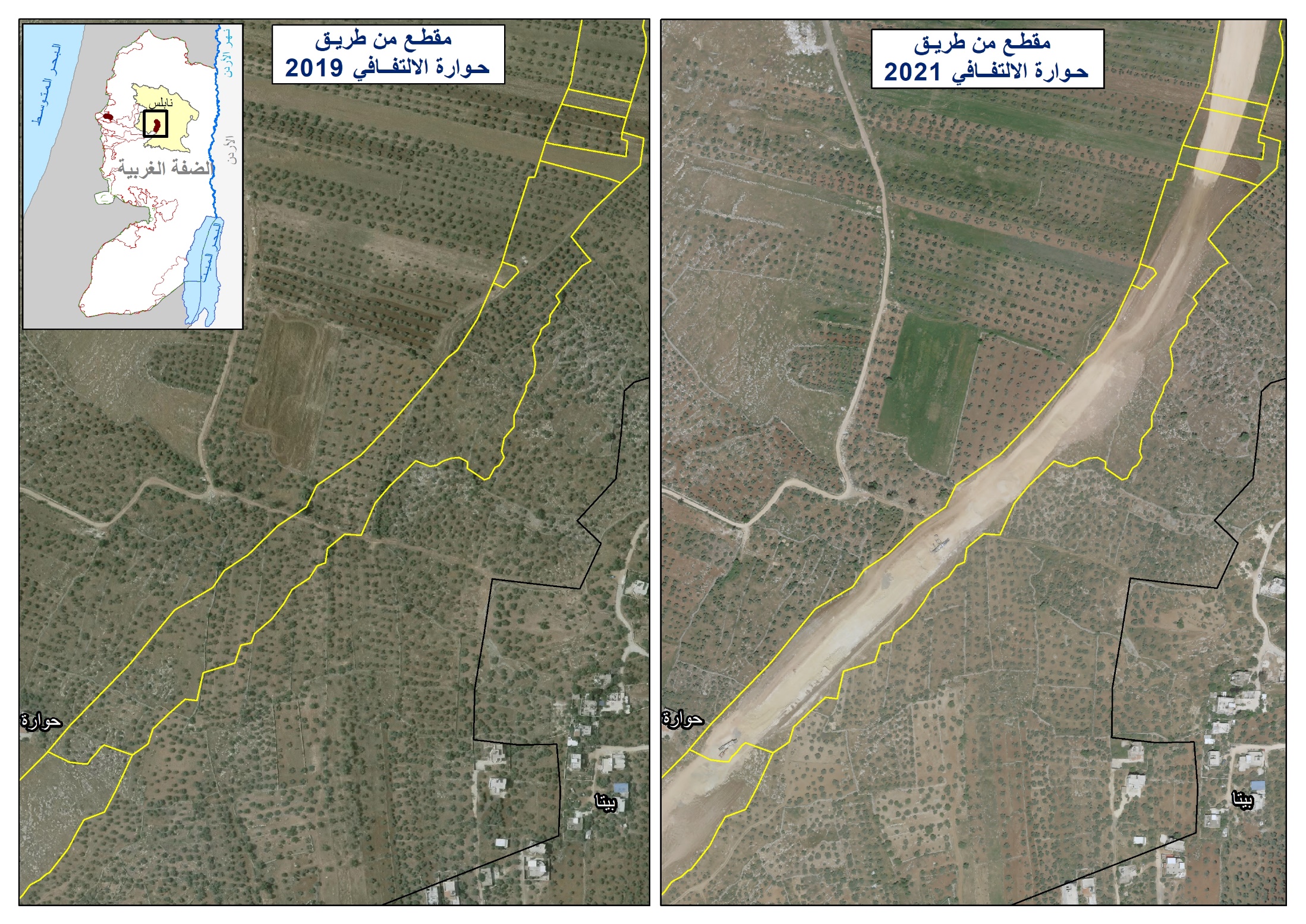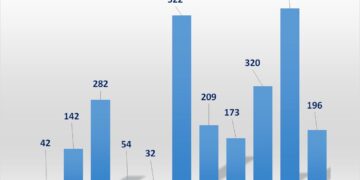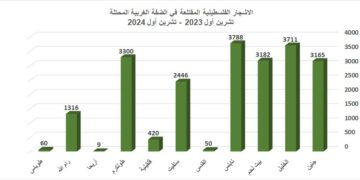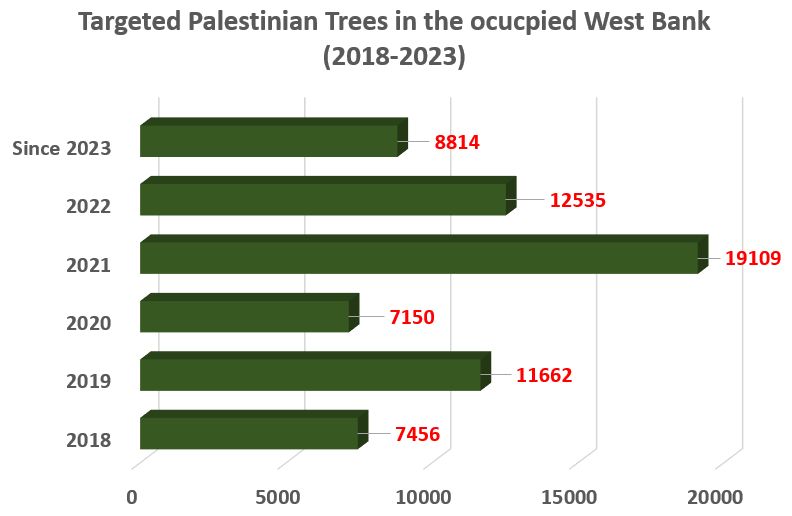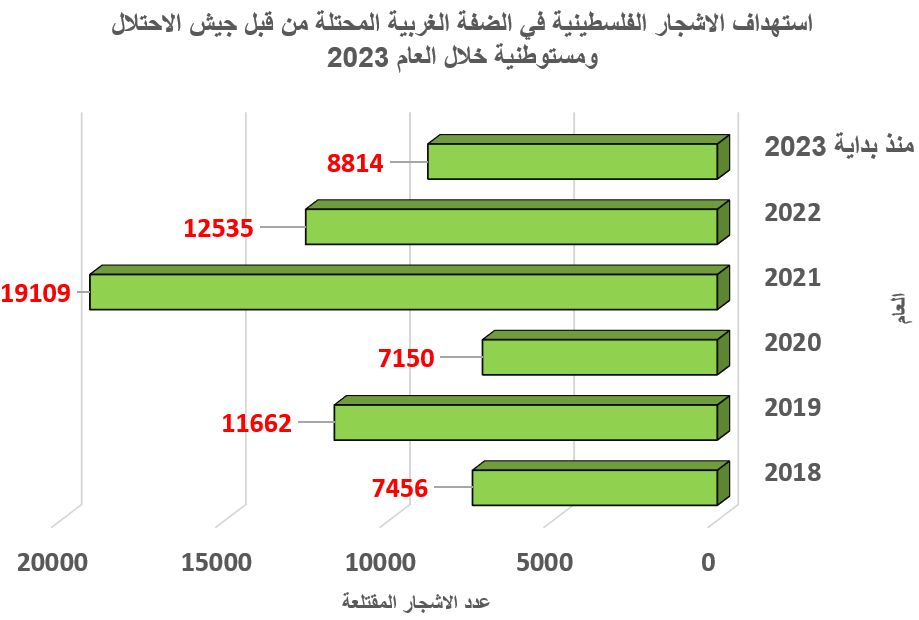Introduction:
The Applied Research Institute – Jerusalem presents this position paper to address the concerning issue of reducing the daily amount of water supply to Hebron and Bethlehem Governorates in the occupied West Bank by Mekorot, the Israeli national water company. We believe it is imperative to shed light on the negative consequences of such actions and advocate for a fair and equitable water distribution system that upholds the rights and well-being of the Palestinian population.
The water crisis in the occupied Palestinian Territory (oPT) has reached a critical stage, jeopardizing the livelihoods of Palestinians and hindering economic development. The current situation is not due to a scarcity of water resources but rather the result of an uneven and inequitable distribution of this vital resource between Israelis and Palestinians. Mekorot’s decision to reduce the daily water supply to Hebron and Bethlehem Governorates exacerbates an already dire situation.
Violation of Human Rights:
Reducing the water supply to Hebron and Bethlehem Governorates violates the fundamental human rights of the Palestinian population. Access to clean and safe drinking water is recognized as a basic human right by international law, including the Universal Declaration of Human Rights[1] and the International Covenant on Economic, Social, and Cultural Rights[2]. By impeding Palestinians’ access to an adequate water supply, Mekorot is infringing upon their basic rights and contributing to their suffering.
Impacts on Livelihoods and Economic Development:
The reduction in water supply has severe implications for the livelihoods and economic development of Hebron and Bethlehem Governorates. Agriculture, a key sector for the Palestinian economy, heavily relies on water resources. Insufficient water supply jeopardizes crop yields, agricultural productivity, livestock rearing, and food security[3], leading to income loss and economic instability. Moreover, limited access to water hampers the establishment and growth of businesses, hindering economic opportunities for Palestinians.
Impacts on groups in vulnerable and marginalized situations:
The reduction in water supply has severe implications for children and adolescents, women and girls, persons with disabilities, and older persons. Limited access to water will put in place significant barriers to the full enjoyment of their rights to an adequate standard of living, health, education, protection, as well as the right to life and human dignity, and a safe, clean, healthy, and sustainable environment. Limited access to water will increase gender-based violence, and hinder addressing harmful traditional practices.
Unequal Distribution of Resources:
The unequal distribution of water resources between Israelis and Palestinians is a result of systematic policies. The Israeli settlements, which benefit from abundant water resources[4] [5], often receive a disproportionately larger share of the available water, while Palestinian communities are left with limited access[6]. This inequity perpetuates the cycle of dependency and marginalization of the Palestinian population, violating the principles of fairness and justice.
Obstacles to Peace:
The water crisis exacerbates tensions and hampers efforts towards peaceful solution between Israelis and Palestinians. Access to water should be a shared responsibility, fostering cooperation and mutual understanding. However, the current situation breeds resentment and perpetuates an environment of hostility, hindering the prospects for a just and lasting peace.
Recommendations:
In light of the aforementioned concerns, we call for the following actions to address the water crisis in the occupied Palestinian territory, and with particular focus on Hebron and Bethlehem Governorates:
- Immediate Reversal: The Israeli National water company, Mekorot, should immediately reverse its decision to reduce the daily water supply to Hebron and Bethlehem Governorates, ensuring an adequate and uninterrupted water supply to meet the needs of the Palestinian population and population growth.
- Equitable Water Allocation: A fair and equitable water distribution system should be established, prioritizing the needs of Palestinians and ensuring their rightful share of water resources based on signed agreements[7] and international standards.
- International Support: The international community should actively support efforts to resolve the water crisis, providing technical assistance, funding, and diplomatic pressure to ensure the implementation of equitable water management practices and to address the water crisis in a manner that respects the rights and dignity of Palestinians.
- Human Rights: Addressing the water crisis in the occupied State of Palestine requires urgent action to safeguard the rights and well-being of the Palestinian population. Recognizing the importance of water as a shared resource can lead to a just and sustainable solution that promotes climate justice, peace, stability, and equitable access to water for all.
- Accountability: Water is a basic human rights, not an economic commodity. Mekorot should be held accountable to decision that jeopardises water as a resource that supports life and human rights.
[1] The human right to water and sanitation, Resolution adopted by the General Assembly on 28 July 2010
https://documents-dds-ny.un.org/doc/UNDOC/GEN/N09/479/35/PDF/N0947935.pdf?OpenElement
[2] The right to water
(arts. 11 and 12 of the International Covenant on Economic, Social and Cultural Rights)
https://www2.ohchr.org/english/issues/water/docs/cescr_gc_15.pdf
[3] Socio-Economic and Food Security Atlas
https://www.arij.org/publications/books-atlases/books-atlases-2010/socio-economic-food-security/
[4] STATUS OF THE ENVIRONMENT IN THE STATE OF PALESTINE 2015 (2.3 Analysis of the Current Status of the Water Sector in Palestine) – (2.3.1 WATER RESOURCES)
Palestine has three main sources of freshwater including; the Jordan River, the West Bank’s Aquifer and the Coastal Aquifer. Israel controls almost all Palestinian water resources and is exploiting around 85% of the available water; leaving only 15% to the Palestinians.
[5] Parched: Israel’s policy of water deprivation in the West Bank
https://www.btselem.org/publications/202305_parched
Israelis, including those living in settlements, use an average of 247 liters of water a day per person – three times the quantity used by Palestinians in the West Bank, which amounts to 82.4 liters a person.
[6] A CRITICAL ANALYSIS OF THE ISRAELI PALETINIAN WATER RELATIONS
https://www.arij.org/wp-content/uploads/2014/01/A-CRITICAL-ANALYSIS-OF-THE-ISRAELI-PALETINIAN-WATER-RELATIONS.pdf
[7] The Water Rights and the Water Wrongs in Palestine: Article 40 of the Oslo Accords tackled one of the most crucial problems that faced the two neighbouring countries – water rights. To sum, Article 40 stated that Israel has to recognise Palestine’s own water rights; co-operate to develop new water sources and to stop deterioration in existing sources; Palestine to be allowed access to a minimum of 70-80CM/per year; both parties to commit to additional water supplies throughout the West Bank; a formation of a Joint Water Committee (JWC).
https://www.arij.org/publications/papers/2008-papers/the-water-rights-and-the-water-wrongs-in-palestine/
Prepared by:
The Applied Research Institute – Jerusalem


